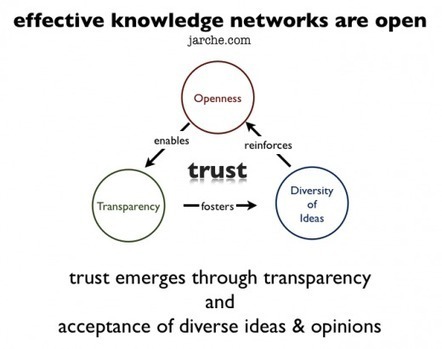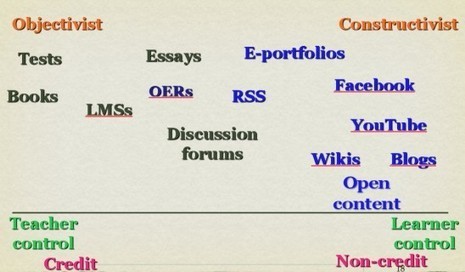The role of networked learning in academics’ writing
Get Started for FREE
Sign up with Facebook Sign up with X
I don't have a Facebook or a X account
 Your new post is loading... Your new post is loading...
 Your new post is loading... Your new post is loading...
|

Nik Peachey's curator insight,
September 3, 2015 12:13 PM
Useful source of relaible research and case studies. 
Lewis Walker's curator insight,
October 14, 2015 12:26 PM
Newt Literacy has a very good resource to find some of the best practices being used around the world to improve Digital literacy. Share the information it may help another non profit save time and improve service.

Peter B. Sloep's curator insight,
March 25, 2013 12:33 PM
Tony Bates reports that he has "grown increasingly convinced that [web 2.0 tools] have the power to really revolutionize university teaching in particular". Unfortunately, he says, formal post-secondary education shows few signs of have understood this message. This is a pity, he continues, as web 2.0 tools i) can facilitate 21st century knowledge workers, ii) lend themselves to constructivist approaches, iii) are familiar to students, iv) are more engaging for student.
These are the reasons most people will mention for why we should invoke web 2.0 tools. However, Tony's fifth reason is not so familiar and arguably the most powerful one. Eventually, he claims, web 2.0 tools will radically change student assessment. No more paper and pencil or computer marked assignments, but assignment via portfolios and the use of multimedia. That of course requires us to rethink the idea of a course completely.
It also shows that MOOCs really are 'education as we know it' in an online mould. If Tony is right, then we may wonder if quality will prevail (that is redesign of education making full use of the affordances of web 2.0 tools) or if maximizing revenues will prevail (that is, sticking to existing models but broadcasting the content even more widely). Seen in this way, MOOCs really are web 1.0, the information web, rather than the social web that web 2.0 is. So, a step back rather than a step forward. (@pbsloep)

Louise Lewis's curator insight,
March 26, 2013 6:30 AM
Yes, totally agree with the comments re MOOCS being web 1.0 but what if they are just another resources for a learner in a learner-centred environment?
|

















